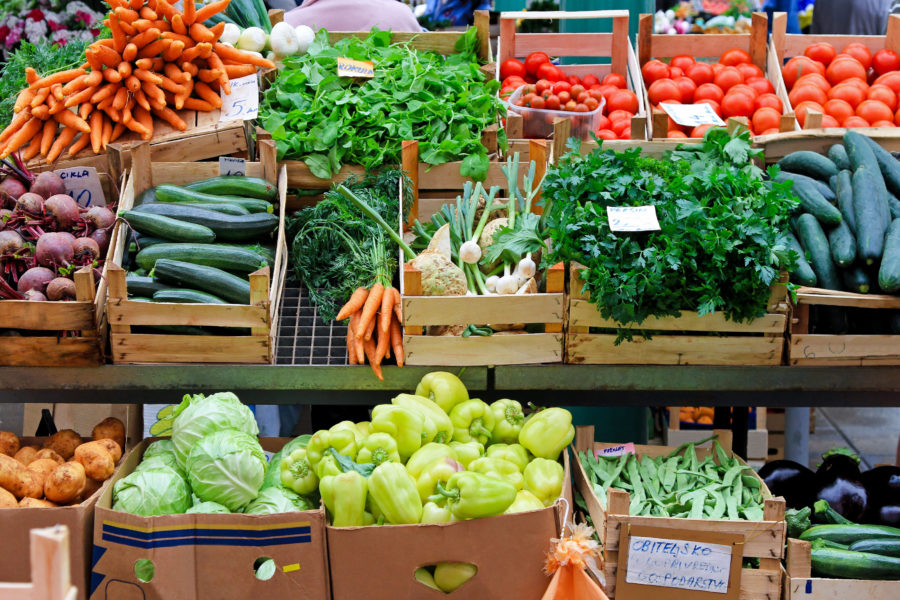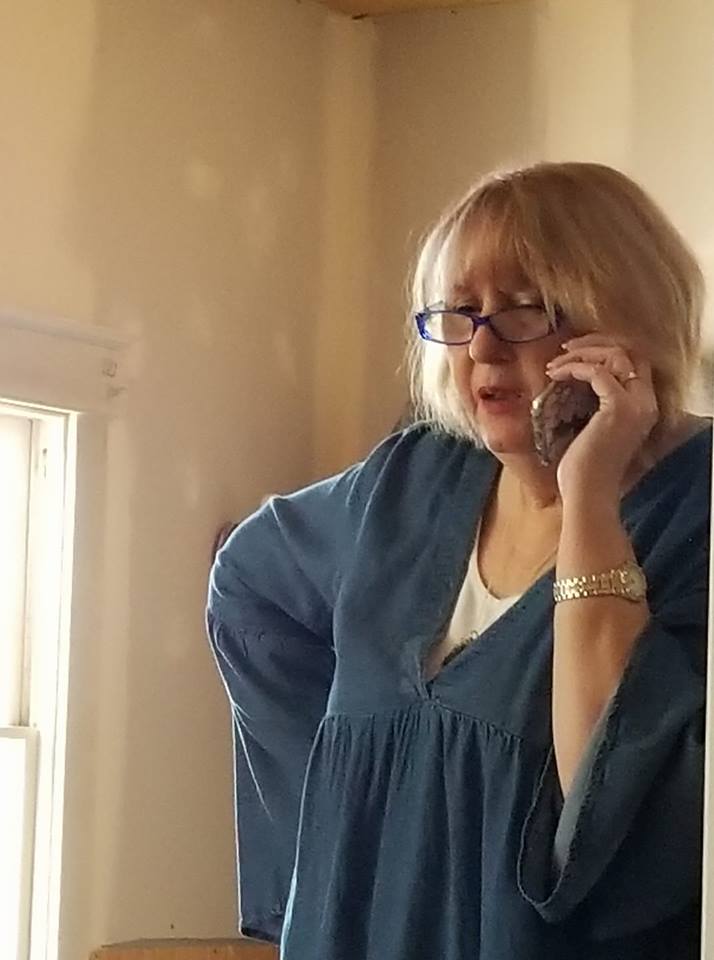We all have heard of eating responsibly when it comes to taking care of our personal health, but how much do we know about eating responsibly in terms of taking care of our collective well-being?
By Mandy Peterson
Most of us know on some level that one key to taking care of our collective and environmental well-being is to reduce the amount of waste we create on a daily basis. But we may begin to feel such a task is difficult or even sometimes impossible when we need food to survive and most of what we purchase at the grocery mart contradicts some of our best intentions to live collectively healthier lives. And since most of us have neither the means nor the ability to create a complex greenhouse or garden that can fully provide what we needed to feed our family and ourselves, we are still dependent on getting our needs met through what we can buy outside our homes or at the local supermarket. However, the task of making more responsible choices does not necessarily need to be a complicated one or an all-or-nothing process. There are a few simple things that we can do to make a difference.
Fruits and Vegetables
The best option would be to buy your fruits and vegetables from an organic farm. When purchased this way, you are not only supporting organic farmers, but you can avoid all the extraneous packaging that is involved when you buy your produce at the grocery store. Yes, plastic and other packaging can be recycled, but the recycling process itself consumes energy, is polluting, and involves transportation (creating emissions). When buying from an organic farm, however, all your items can often be placed together in the same bag or used cardboard box without the need for each item to be individually packaged. The good news is that there are a lot of organic growers or stores that will deliver organic baskets right to your door. The delivery of organic foods is usually by route, so all deliveries can be carpooled together for the same area, saving people making individual trips (meaning less petroleum emissions).
Sometimes, using a supermarket is still hard to avoid. Even so, it is not impossible to make collectively healthy choices. For example, you can buy your fruits and vegetables from the produce section of your supermarket avoiding any brand that comes packaged in thick plastic containers or unnecessary packaging. Support brands that package less (e.g., some brands of tomatoes come with packaging and other brands come without it). Opt to use the plastic produce bags and then save them so you can bring them back to the store to reuse.
Meat, Fish and Deli
Local butchers and fish markets can usually provide meat and fish that are free of a lot of the plastic wrapping and extra packaging that you find at the grocery mart. Some butchers will also offer organic or grass fed meats or meats from local farmers. Choosing grass fed meat and free range products over regular products also sends a message to consumer that we want the animals we eat to be treated more humanely.
 If you do have to shop at a grocery market, shop for meat and fish products from the in-store fresh meat, deli, or fish departments rather than the shopping isles. While it may be convenient to buy brand name and prepared meat products that come with a lot of packaging, try to keep these products at a minimum and prepare your own the old fashioned way: with a recipe.
If you do have to shop at a grocery market, shop for meat and fish products from the in-store fresh meat, deli, or fish departments rather than the shopping isles. While it may be convenient to buy brand name and prepared meat products that come with a lot of packaging, try to keep these products at a minimum and prepare your own the old fashioned way: with a recipe.
Cheese, Dairy and Beverages
To make the collectively conscious choice, try to stay away from individual sized yogurts, beverages, or other dairy products which create a lot of plastic waste. Here in Ontario, Pinehedge Farms sells organic yogurt and kefir in glass containers which you can get 1$ back when you return your empties to the store. For those who prefer bottled spring water, if you buy the 8 litre jugs that you can return your empties (or buy a purifier). You can also invest in a reusable steel bottle to take water, juices, or coffee with you on the road, in your lunch bag, or to the coffee shop. This is better than throwing out a lot of disposable plastic bottles and cups.
Another thing you can do is switch from using margarine that comes in plastic containers to using butter packaged as a brick. The same applies to certain cheeses (like cream cheese).
Frozen Foods
If you want to shop in more collectively minded ways but still want a few sweet treats, you can pick ice creams and treats that are less contained in plastic containers and which employ less extraneous wrapping. For frozen meals and veggies the same applies. Where possible, try to buy French fries, frozen vegetables, and other frozen items in larger 2kg sized packages rather than the 340 gram size. The smaller sizes waste a lot of plastic and don’t always fill the bag entirely.
Try to avoid buying frozen dinners that come with plastics that are safe to put in the microwave or oven. If you must buy prepackaged meals, sometimes pizzas can be bought that don’t even have a box. If you really want to help the environment, keep indulgences in convenience foods to a minimum rather than having them fill up your grocery cart.
Breads and Pastries
 Try buying organic bread from a bakery, even within your grocery store. Use caution with cakes, pastries, donuts and other items that are packaged in see through plastic or other plastic containers. When possible, make your own pastry items instead or visit a pastry shop that makes pastries fresh on the premise and packaged without a lot of excess plastic packaging.
Try buying organic bread from a bakery, even within your grocery store. Use caution with cakes, pastries, donuts and other items that are packaged in see through plastic or other plastic containers. When possible, make your own pastry items instead or visit a pastry shop that makes pastries fresh on the premise and packaged without a lot of excess plastic packaging.
Pantry Items
Like stated above, commit to making your own cookies, cakes, and treats rather than shopping for prepackaged goodies that come with a lot of excess packaging. If you really feel you need the convenience of premade, buy cookie dough in the dairy section or try baking mixes that have minimal packaging.
For salty snacks, try unpopped popcorn that you pop yourself instead of popcorn that is microwaveable or pre-popped and packaged. Fruits and veggies make a great snack too and are easy on the waistline. You can also buy some of your pantry items at a bulk barn where you can bag your own nuts, flours, and other items. You can even use/reuse your own bags.
The general rule is that “less is more” in some ways but “bigger is better” in others. For example, buy rice in the 2 kg bags and stay away from buying too many items that are individually-sized (such as fruit cups, pudding cups, crackers etc. Opt for replacing these items with a piece of fruit, nuts, or other treats you can buy in bulk. Using a reusable sandwich container can prevent you from needing to buy plastic baggies that just get tossed away. A reusable lunch bag (rather than a paper bag) doesn’t hurt as well. Focus on whatever creates the least waste and supports organic and earth friendly producers.
Vegetarian and Raw Food Lifestyles (Optional)
While vegetarianism is not always appropriate or healthful for all people (e.g., for those suffering vitamin B 12 deficiency or other medical issues), a lot of environmentalists these days recommend a vegetarian or vegan lifestyle as a great way to help the environment. This is based upon what goes into feeding and maintaining livestock and the stress this places on our environment. Another factor is the humane treatment of animals.
Raw food lifestyles are also becoming popular and these support a collectively conscious agenda as well. When food is bought raw, there is less packaging or processing involved and such a diet consists of eating from primarily the produce section of your supermarket or from buying from a farmers market.
Other Considerations
- Consider doing all your shopping in one trip, visiting every store you need to within the same area, you can reduce your use of petroleum/gas than if you took individual trips.
- Rely less on disposable products (like straws and cups).
- Become savvy concerning how some producers will market their products in somewhat deceiving ways (i.e., using words like “natural” or “free from” in a deceptive way).
- Think about the company that created certain brand products, their ethics, and their environmental policy. Buy brands that are backed by companies that are more sustainably-minded.
- When eating out, think about supporting environmentally conscious businesses over others that seem simply motivated by greed or profit.
- Consider responsible choices as those that should be the trendy type and the unconscious ones as more “uncool.”
- While not food, your grocery store carries a lot of hygiene and cleaning products that create a lot of waste. Limit use of disposable razors, diapers, wipes, etc., and use baking soda and vinegar to clean most of your home.
About the Author:
 Mandy Peterson (aka Mystic Mandy) is a psychic visionary, empath, channel, EFT Practitioner. She is the author of the book I Am the Lotus, Not the Muddy Pond: Achieving Peace Through Non-Conformity. As an empathic healer and reader, Mandy works 1-to-1 with clients, helping them to achieve clarity, peace and balance. Through her writing, Mandy seeks to spread a message of healing and peace and as it relates to a bigger picture or the collective consciousness.
Mandy Peterson (aka Mystic Mandy) is a psychic visionary, empath, channel, EFT Practitioner. She is the author of the book I Am the Lotus, Not the Muddy Pond: Achieving Peace Through Non-Conformity. As an empathic healer and reader, Mandy works 1-to-1 with clients, helping them to achieve clarity, peace and balance. Through her writing, Mandy seeks to spread a message of healing and peace and as it relates to a bigger picture or the collective consciousness.





